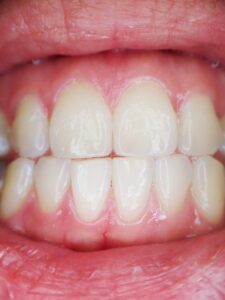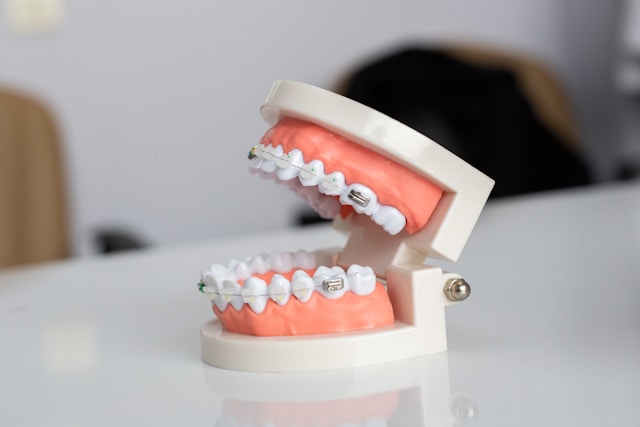
Trench mouth is an advanced and serious case of gingivitis with symptoms like bleeding gums and ulcers in between teeth and gums. If untreated, it can destroy gum tissue and spread to nearby tissues.
Trench mouth is also known as Vincent stomatitis, necrotizing ulcerative periodontitis, and acute necrotizing ulcerative gingivitis. It is an uncommon condition affecting about 0.5 to 11% of the people aged 18 to 20.
It’s more common in places without proper dental care access and in those with immune system diseases.
Symptoms and causes
It’s when the natural bacteria in your mouth multiplies or overgrows that it infects your gums. This overgrowth or trench mouth can be triggered through:
• Diseases like HIV, diabetes
• Poor diet and oral hygiene
• Alcohol abuse
• Gum injuries or gingivitis
• Insufficient sleep
Typical symptoms include:
• Sudden and intense gum pain
• Sores or ulcers on papillae
• Yellow-white membrane on the skin between teeth
• Bleeding gums
• Extremely bad breath
• Swollen lymph nodes, fatigue, and fever in extreme cases
Diagnosis and tests
Healthcare providers diagnose the condition by checking:
• Your medical history including diet, overall health, and immunity
• Your dental history
• Lymph nodes for possible swelling
• Inner mouth for infection, swelling, or pasty saliva
• Blood tests for relative bacteria
Treatment
Trench mouth is best treated by preventing it from spreading, and managing the related pain. This can be done by your orthodontist:
• Using chemicals or an ultrasonic instrument to clean teeth and remove dead gum tissues
• Prescribing antibiotics and pain medication
• Performing gum surgery to fill craters in between teeth
While the above-mentioned treatments usually cure the condition, there are times when they may not work.
Common reasons for them not working include:
• Dead or diseases tissue remnants after treatment
• Improper removal of the infection’s root cause
• Underlying medical issues
• Not following good dental hygiene or health
Preventive measures
Prevention is always better than cure. Practicing good dental hygiene through regular flossing and teeth brushing can prevent trench mouth.
Remember, trench mouth occurs when the immune system is stressed. So having healthy habits like coping with stress, proper diet and sleep, and not smoking can help support your immune system.
Questions to ask your healthcare provider
Trench mouth is relatively uncommon these days, and was most common during World War I. So if you learn you are suffering from it, there are a few questions you must ask your healthcare provider:
a) Will you be able to cure me?
b) What started it in the first place?
c) Do I require gum surgery?
d) Will I get trench mouth again?
e) Is it possible to prevent it from recurring, and if yes, how?
Like any periodontal disease, there is no single solution to the problem. You will have to consult your dental professional to find the proper treatment to completely treat and eradicate trench mouth.
They will perform the necessary diagnosis, come up with a personalized treatment plan to help treat the condition, and also guide you on maintaining optimal oral health and preventing possible reinfection.


